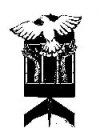Russia Targets Anti-nuclear Movement
The campaign of Russian secret police (FSB) against anti-nuclear environmentalists continues, even as the case against Nikitin stumbles along and Pasko goes free. In July alone, the FSB searched the home and lab of an oceanography professor researching the impact of a 1985 Russian navy reactor accident and denied a visa for an American exchange student in Voronezh, accusing her of collecting "secret" environmental information. Then Vladimir Putin, head of the FSB, warned darkly that "foreign secret services use not only diplomatic cover, but very actively use all sorts of ecological organizations."
On 6 September, Voronezh action camp organizer Vladimir Slivyak was pushed into a car by men claiming to be Moscow police, who interrogated and threatened him for more than 90 minutes. The police alleged environmentalists were involved with an explosion August 31 at Manezh Palace in Moscow, and asked Slivyak to implicate a man he barely knew. Slivyak refused to cooperate, and was eventually let go.
Very shortly afterwards, the local coordinator of the Voronezh action camp was called by Voronezh FSB agents and asked to have an "informal" talk. The agent told the activist that if he didn't cooperate, he may have the same problems his colleagues just had in Moscow.
An international fax campaign has been initiated to support Slivyak, who has worked closely with NIRS, co-sponsor of grassroots anti-nuclear nonviolent action camps in the U.S. and eastern Europe.
Since that first explosion, several more bombings have provoked the racially profiled arrest and detention of thousands of dark-skinned Muscovites and visitors to the Russian capital. Slivyak is on holiday outside the city.
Support for Vladimir Slivyak is being coordinated by Nuclear Information & Resource Service, 1424 16th St. N.W., Suite 404, Washington, D.C. 20036; (202) 328-0002 http://www.nirs.org
Slivyak was also one of three people arrested last December for hanging a banner at the Ministry of Atomic Power offices in Moscow, demanding a halt to nuclear waste imports. The three were warned, not prosecuted.
And last March, three people were arrested during a demonstration against the planned Voronezh nuclear heating plant, held in conjunction with a Eurasian anti-nuclear networking conference in the city. A "March of Mutants" through the central city drew attention to a protest supported by local residents, the vast majority of whom voted against the plant in a 1990 referendum. Following much publicity, the three were not prosecuted.
